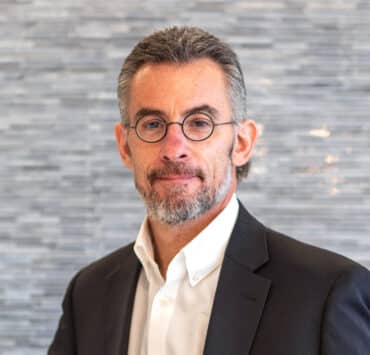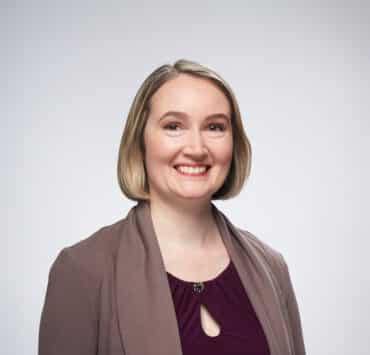|
Getting your Trinity Audio player ready...
|
One of the first things you’ll notice if you’re fortunate enough to meet Ted Syverson is a depth of empathy. The new vice president of revenue cycle at the University of Kentucky’s King’s Daughters Medical Center has built out nearly twenty-five years of primarily rural-based healthcare experience in revenue cycle. His expertise comes with a deep understanding of the rural US and the challenges the people there face. Too often, rural residents are overlooked by professionals who have exclusively worked in metropolitan areas.
But Syverson’s empathy comes from a deeply personal moment. He vividly recalls the last time he saw his grandfather, a veteran who had heart failure at his VA hospital.
“It was Christmas Eve of 1999, and my grandfather was having a major heart episode, so we brought him to the hospital and spent the better part of our Christmas Eve with him,” Syverson remembers. “I remember turning to leave—and keep in mind I’d been in the industry long enough to understand what was going on—and over my shoulder, I heard my grandfather speaking to the nurse and explaining that he didn’t know how he was going to afford to pay for all this care.”
Syverson’s grandfather was a seventy-eight-year-old vet with his healthcare being taken care of. “What kills me to this day is that I didn’t take the time to turn around and explain to him that he didn’t have anything to worry about when it came to paying for his care. He passed away that evening, and I just wish I could have given him that comfort,” Syverson says. “I just assumed I would see him the next morning, but I keep that in my head every day.”
The Right Vendor as Filter
Ted Syverson has only been at King’s Daughters Medical Center for a few months, but he’s deep into the weeds about helping his own organization bring out the best in its health system. The VP highlights the importance that outside vendors can have for rural-based healthcare, and he highlights the importance of building relationships that make sense for both parties.
“One of the big changes I’ve seen over the years is the importance of finding a vendor partner that helps identify the efficiencies of other vendor partners that are out in the marketplace,” Syverson says. “That’s been huge for vendor management revenue cycle—to be able to filter out a lot of the overlap that typically occurs between these relationships.”
But his career is not a penance or an attempt to make things right. Syverson has managed to inject a tremendous amount of heart into what he does at King’s Daughters. While he has only been at KDMC for a few months, the revenue pro spent nearly five years as VP of revenue cycle and strategic operations with Monument Health in Rapid City, South Dakota.
Along with the traditional host of rural challenges, Rapid City and the Black Hills region is also home to five Lakota Tribe reservations that fell within Syverson’s region. People in the US and outside of it may often be oblivious to the plight of Indigenous Americans on reservations throughout the country, especially the lack of healthcare resources.
“The Black Hills is so special, particularly because of the deep history there, but part of that history has driven huge wedges in parts of the community,” Syverson says. “It takes great leadership to make a very deliberate investment of time and effort to understand those communities and what they’re about.”
Syverson recognizes that King’s Daughters, which lies on the borders of eastern Kentucky, southeastern Ohio, and West Virginia, has a much different population demographic than Rapid City, but some similarities cannot be ignored. The diminishing demand of coal and steel that used to pour from those communities has ushered in decades of economic insecurity.
“Communities have shrunk a lot here, but there’s been a theme in my experience of translating community needs from difficult circumstances. Being able to translate and understand that need has helped push for more holistic care,” he explains. Throughout the last few decades of his time in healthcare, he has looked to more comprehensive care, which involves not just a financial element but also an undeniable spiritual aspect that his patients take more seriously.
“As a financial steward for King’s Daughters, the University of Kentucky patient population is at the forefront of any decision Ted makes,” explains Nick Fricano, CEO at Healthfuse. “We’re extremely proud to partner with an industry-leader like Ted, who understands how critical Revenue Cycle Vendor Management is to a health system’s bottom line, and ultimately their patient community.”
Syverson says, unsurprisingly, that empathy is an integral part of his job. He approaches his role from a patient financial advocate stance, who sees it as his job to provide transparency and options for the patients of his health system.
The VP says it requires almost an artistic eye to see the connection of the community, the understanding of the patient and customer, and each phase they go through on their healthcare journey. Translating all of those in true partnership with the clinical organization is the trick, and Syverson says both empathy and care are a must.
Fortunately, Syverson has yet another perspective to examine every time he clocks out for the day. The VP is married to Alicia Syverson, director of value-based care and care management at Monument Health, where the two previously worked together.
“Over the years, I’ve internalized so much of what I’ve learned about the nursing side of things. Boy, she’s dangerous when it comes to revenue cycle, too,” Syverson says, laughing.


